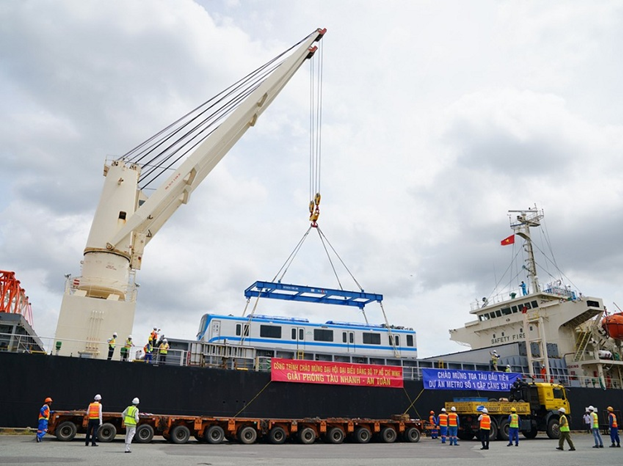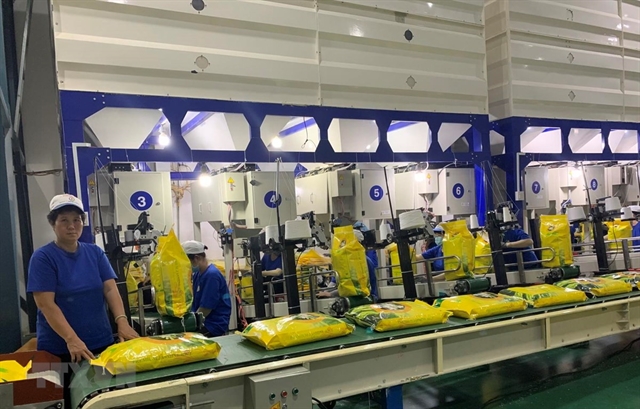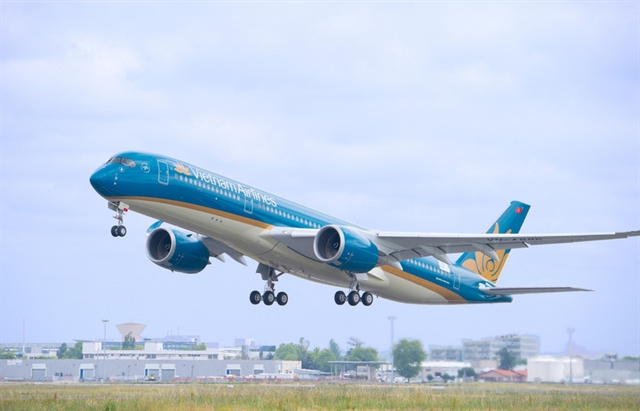 Economy
Economy


|
| Rice packs of Trung An Hi-tech Farming Joint Stock Company are loaded for export to the EU. The EVFTA has already had a significant impact on EU-Việt Nam bilateral trade since its entry into force on August 1. — VNA/VNS Photo |
HÀ NỘI — Since its entry into force on August 1, the European Union (EU) – Việt Nam Free Trade Agreement (EVFTA) has brought first successes, reflected by the strong growth of Việt Nam’s exports to the EU in recent months and opened significant opportunities for sustainable development in bilateral trade.
Deputy Minister of Industry and Trade Trần Quốc Khánh said at a roundtable seminar held by the Delegation of the European Union to Việt Nam on Wednesday that the EVFTA was the spotlight in the relationship between Việt Nam and EU. Four months was not a long period of time but enough to look back at the impacts of the trade deal, Khánh said.
These are positive signs showing the EVFTA has been opening up important opportunities for the sustainable development of bilateral trade relations. The EVFTA should continue to offer important opportunities for the sustainable development of bilateral trade relations.
The first month EVFTA came into effect, Việt Nam’s exports to the EU increased by just about seven per cent then 9 per cent in the second month and 15 per cent in the third month, meaning an average increase of 10-11 per cent in the three-month period. This was a considerable increase compared to other trade deals which saw just around 2-3 per cent of enterprises to be able to take advantage of the preferential tariffs in the first years.
Việt Nam’s imports from the EU were estimated to reach US$13.2 billion in January-November, representing a rise of 4.3 per cent against the same period last year. The average increase in Việt Nam’s imports from the EU in the three-month period when the EVFTA was in force was 11.5 per cent.
“EVFTA brings first fruits and is opening significant opportunities for the sustainable development in trade between the two sides,” Khánh said.
Not only trade but also investment of the EU into Việt Nam increased. Statistics of the Foreign Investment Agency under the Ministry of Planning and Investment showed that EU poured around $752 million worth of investment in Việt Nam in the first three quarters of this year, $100 million and 180 projects higher than before the EVFTA was in force.
Head of the Delegation of the European Union to Vietnam, Ambassador Giorgio Aliberti, said: “Recently, some Vietnamese products have immediately enjoyed the benefits of the EVFTA, such as agricultural, fisheries, and footwear products. The EVFTA is a new and very comprehensive agreement that covers many sectors and industries. However, it is still a challenge to fully understand the standards and requirements set out in the agreement."
Nguyễn Thị Thu Trang, Director of the WTO and Integration Centre under the Việt Nam Chamber of Commerce and Industry (VCCI), said a recent VCCI survey carried out on import-export companies about their undertanding of FTAs found that enterprises understood issues related to their operation fields in the EVFTA much better than other trade deals.
In addition, enterprises were expecting the positive impacts of EVFTA more than other trade deals, demonstrating that the Government’s efforts in promoting communication for the trade deal.
EVFTA also provided opportunity for Việt Nam to hasten institutional reforms toward international standards and make the business environment more transparent and predictable.
Since the EVFTA came into force, three decrees, two decisions and one circular were issued while one decision was abolished in an effort to complete the legal framework and environment for the successful implementation of the EVFTA.
Lương Hoàng Thái, Director of the Multilateral Trade Policy Department, said that still more amendments were needed to improve the legal framework and the institutions to implement the EVFTA efficiently.
Technologies were changing everything, especially in the era of Industry 4.0 and the context of the COVID-19 pandemic, requiring enterprises and management agencies to change to adapt, Thái said. — VNS




